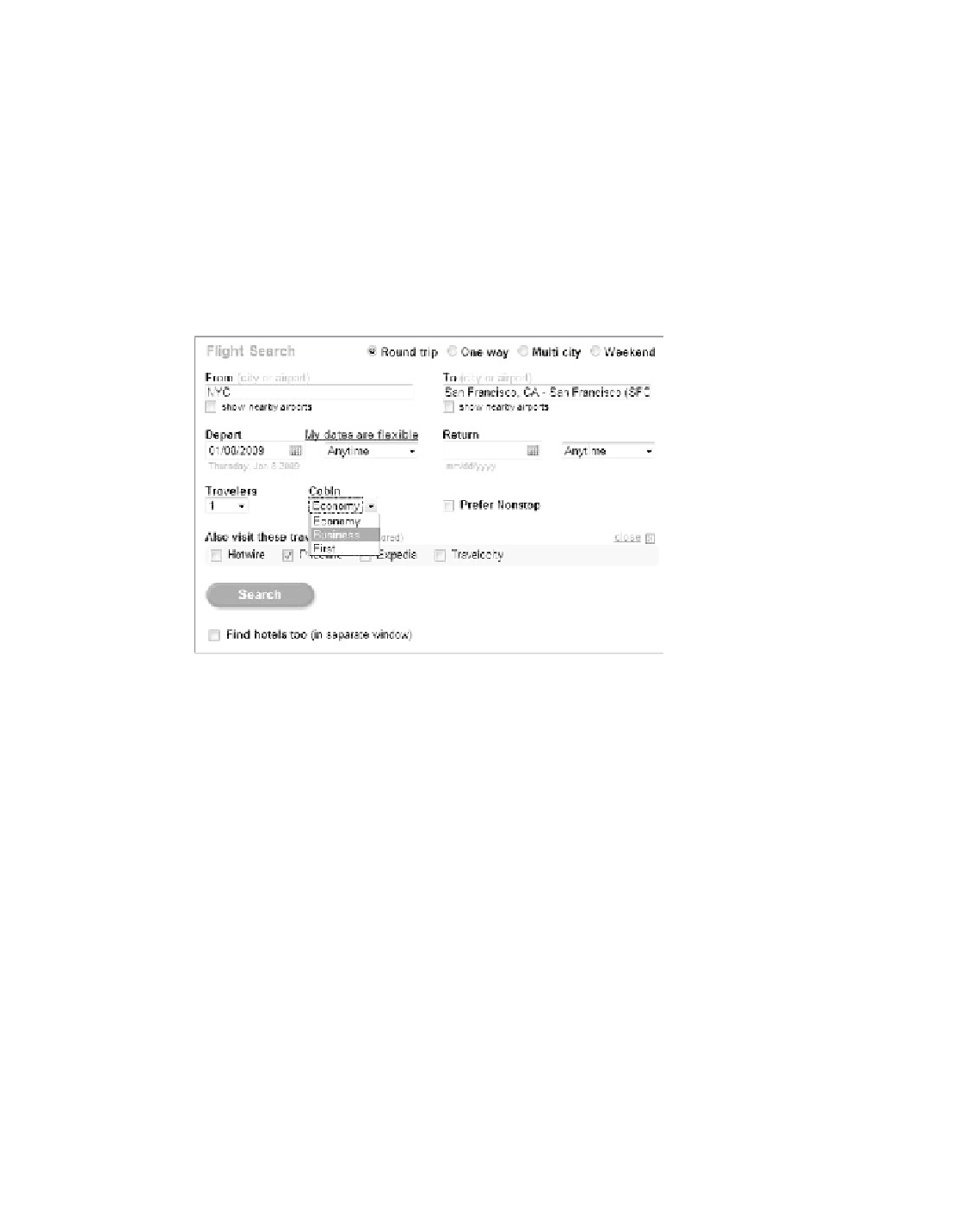Information Technology Reference
In-Depth Information
Tracking Custom Fields
everything presented so far have been about fixed variables, which you could custom-
ize, name, and enhance to derive further value from them. You might, however, find
yourself in a situation where you are asked to collect information that simply does not
fit into any of the standard variables.
this could be as simple as a request from marketing to collect data from a business-
specific dimension. Imagine that you are in the travel and hospitality industry and that
your offering is in part based on a search interface like the one in Figure 5.1.
110
Figure 5.1
Search for flights user interface
From a search interface like the one in Figure 5.1, it would be extremely valuable
to collect the following information:
F
•
rom airport
t
•
o airport
n
•
umber of travelers
•
c
abin type
this search would create an opportunity to list the number of searches with
new York city (nYc) as a starting point and the number of business trips. But this
search would also create four new dimensions in the system that you could use in con-
junction with campaign filtering, campaign segmentation, and conversion points.
For example, you could see if respectively a thousand visits from Google and a
thousand visits from Yahoo! create the same number of searches for business class trips,
which I would presume are much more valuable. this search is an instant opportunity to
evaluate your traffic-acquisition strategies more closely. It is also an opportunity to see if
your visitor-to-customer conversion is different from economy to business. And if that is
the case, is it true on all destinations, or are you just not competitive on certain routes?















